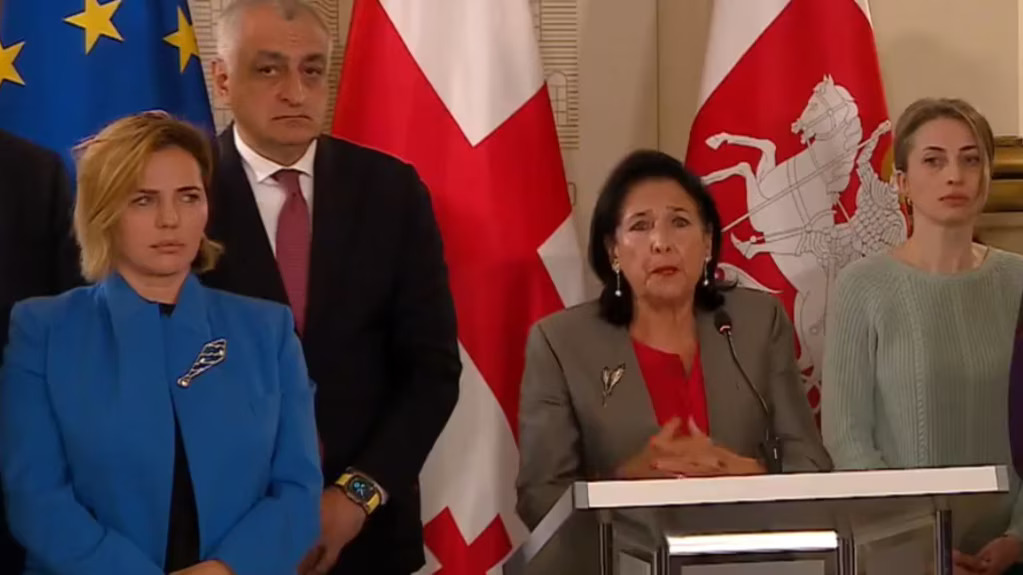Following Georgia’s weekend parliamentary elections, President Salome Zourabichvili publicly rejected the results, claiming the vote was manipulated in favor of the ruling party, Georgian Dream, with alleged Russian interference. She urged citizens to join a protest in Tbilisi, condemning what she labeled as a “total falsification” of votes that threatens Georgia’s aspirations of closer ties with Europe.
Zourabichvili’s stance aligns her with opposition leaders who view the election as critical in deciding whether Georgia pursues integration with the European Union or risks increasing Russian influence.
The Central Election Commission reported Georgian Dream winning with 54.8% of the vote, a result contested by Zourabichvili and opposition voices who see the ruling party as increasingly authoritarian and aligned with Moscow’s methods.
In recent years, Georgian Dream has adopted policies reminiscent of Russia’s, particularly with laws that restrict foreign influence, which has led the EU to pause Georgia’s membership process. Many Georgian citizens saw this election as a referendum on European integration, with the ruling party’s alignment with Russian-style governance intensifying public skepticism.
European election observers highlighted numerous issues, including allegations of vote-buying, double voting, and voter intimidation. Observers from the European Parliament accused Georgian Dream of spreading anti-Western rhetoric and promoting Russian misinformation.

Georgia’s Election Sparks Controversy as President Rejects Results, Citing Russian Influence and Democratic Erosion
This environment, according to European officials, raises doubts about the integrity of the election process, describing it as evidence of Georgia’s “democratic backsliding.” European Council President Charles Michel called on Georgia to investigate these irregularities and demonstrate its commitment to the EU, a demand that casts further international scrutiny on Georgian Dream’s governance.
Prime Minister Irakli Kobakhidze dismissed the claims of election fraud, asserting that the results were legitimate and reflected an “impressive” victory. Hungarian Prime Minister Viktor Orbán, the first foreign leader to congratulate Georgian Dream, is set to visit Georgia, signaling regional support for the ruling party.
However, Georgian observers echoed concerns over electoral misconduct, reporting significant violations that they argue do not represent the Georgian people’s true will, adding fuel to public distrust, especially in the capital Tbilisi, where many consider the results rigged.
The divide between rural and urban voting patterns highlights the nation’s complex geopolitical loyalties. In rural areas like the predominantly Armenian Javakheti region, the Georgian Dream garnered high support, with some residents reportedly receiving voting instructions from local officials and expressing pro-Russian sentiments.
In contrast, Tbilisi saw lower support for the ruling party, reflecting a pro-European inclination. The outcome of this election thus not only reveals a polarized electorate but also questions the direction of Georgia’s future—whether it will strengthen ties with the West or lean toward Moscow, a decision with far-reaching implications for its economy and national identity.
